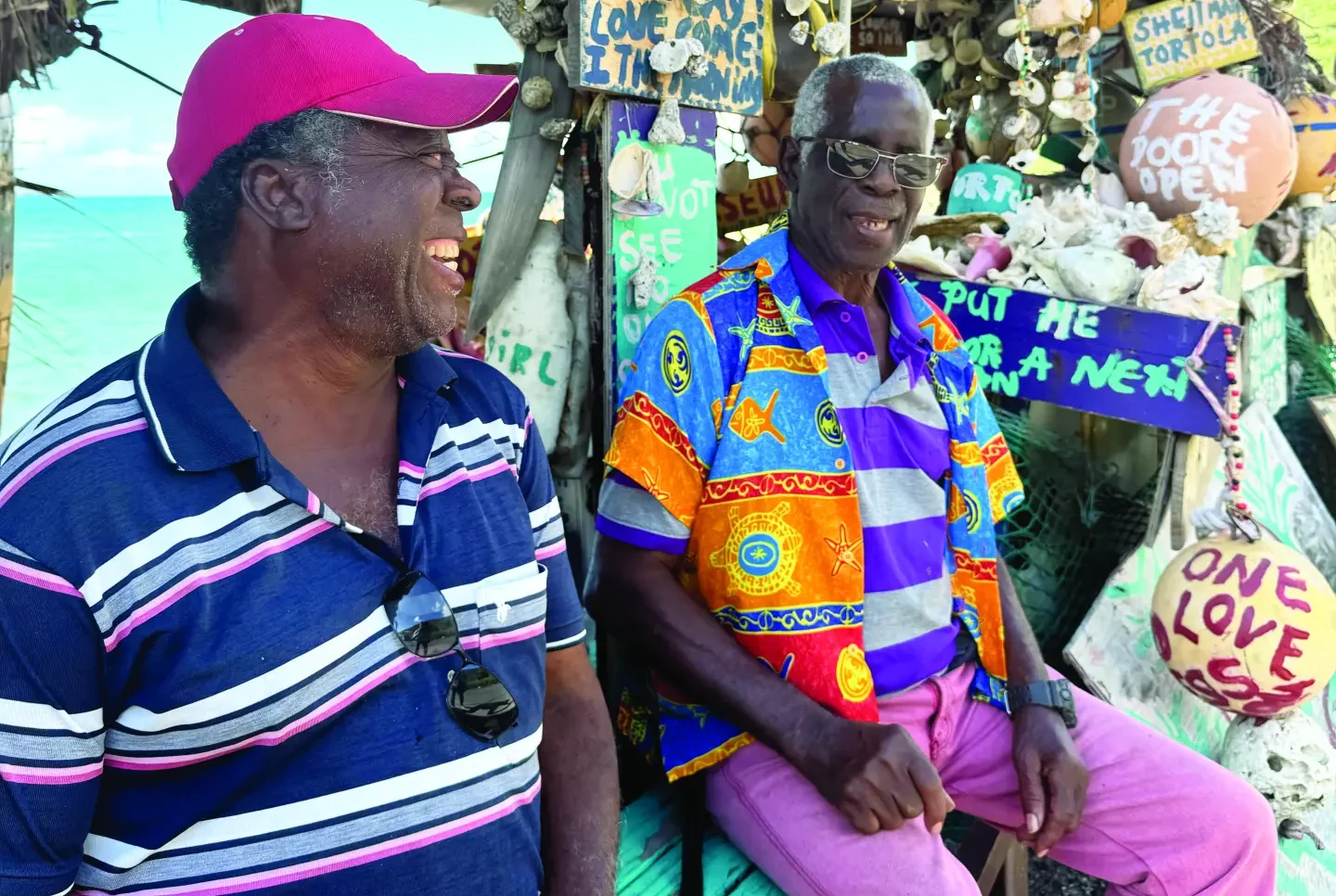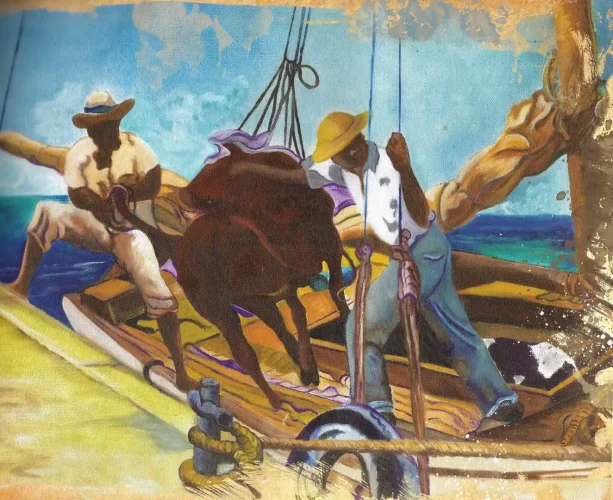Waves lap on the shoreline behind the Shell Museum in the idyllic village of Carrot Bay on the North Western side of Tortola. It is a crystal-clear, bluebird day and the views towards Jost Van Dyke are stunning. The ocean is sparkling and a cool breeze is flowing through the quaint little shack where Egberth Shell Man Donovan spends his days. It is hard to pass by without stopping to browse his eclectic collection of shells, upcycled beach art, crafts and signs – some featuring Egberth’s trademark witty humour.
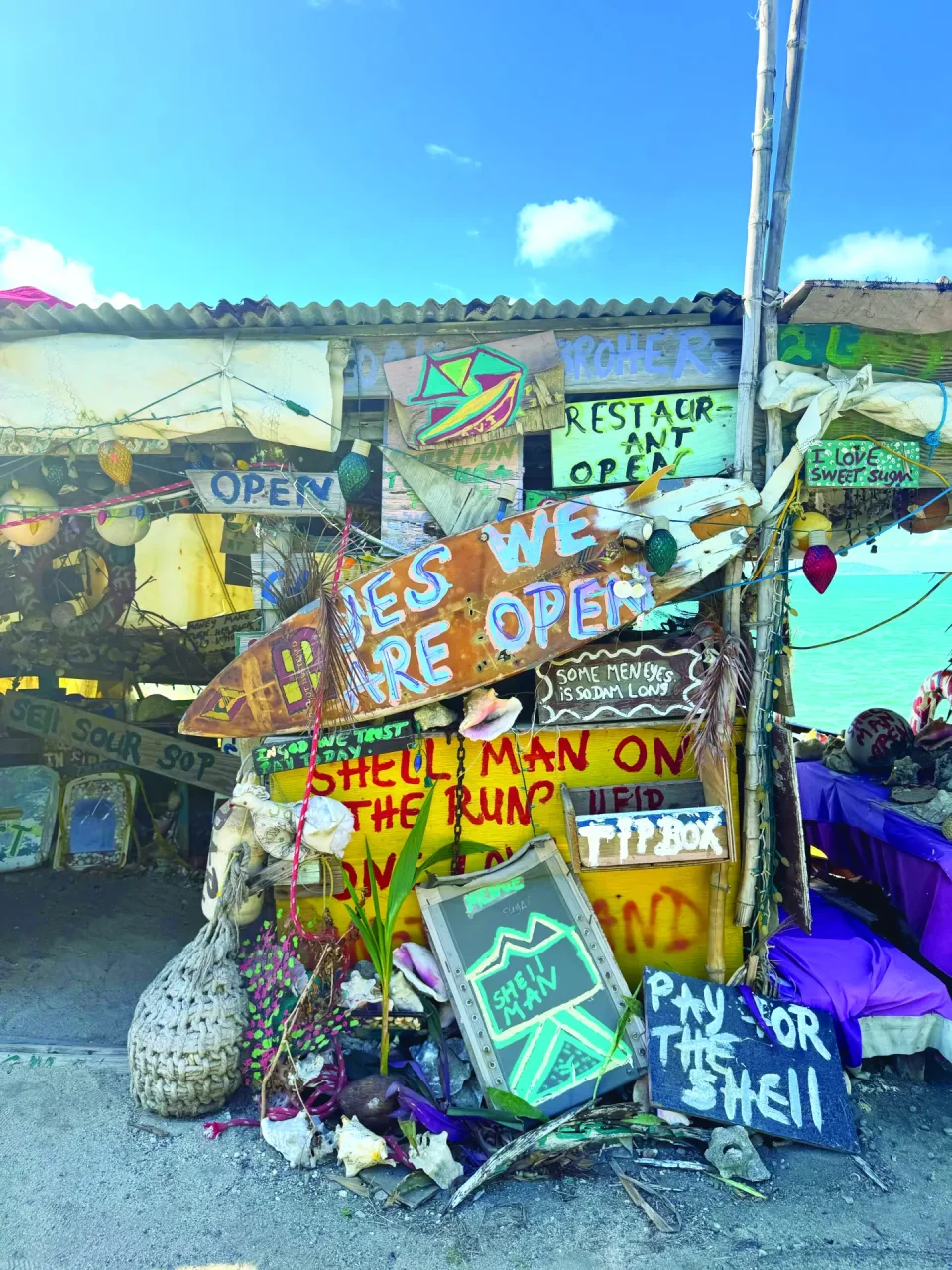
I have come here to learn about his name and reputation as The Shell Man, but I find that Egberth is much more than the curator of the Shell Museum, musician and artist. He is a wealth of knowledge on the history of the Virgin Islands; the old ways and days gone by, that were beautiful in their simplicity.
When Egberth was born in 1952, it was not in Carrot Bay, but on the island of Great [Big] Thatch. It is said that Thatch is a variation of the name Teach. The Thatch Islands, such as Thatch Cay in the US Virgin Islands and Great and Little Thatch in the British, were named after Edward Teach, the infamous pirate better known as Blackbeard.
“My ancestors that lived on Great Thatch originally carried the surname of Quashie, meaning a boy born on Sunday” he says. During the time of slavery however, their name was changed to Donovan – the slave owner’s name, as was sadly the tradition.
Egberth’s love of shells was inherited from his uncle Joe, who his grandmother took care of for many years. “After my grandmother died, I cared for him until he was 95 years old. I loved his shell collection, and he finally told me that he collected them while fishing on the uninhabited island of Tobago, near Jost van Dyke” he says.
So he borrowed a friend’s boat with a small engine and made his way to the island. “I could have rowed faster!” he laughs. “In those days, I was one of only a few people going there to collect shells to display in the museum I was putting together” he continues.
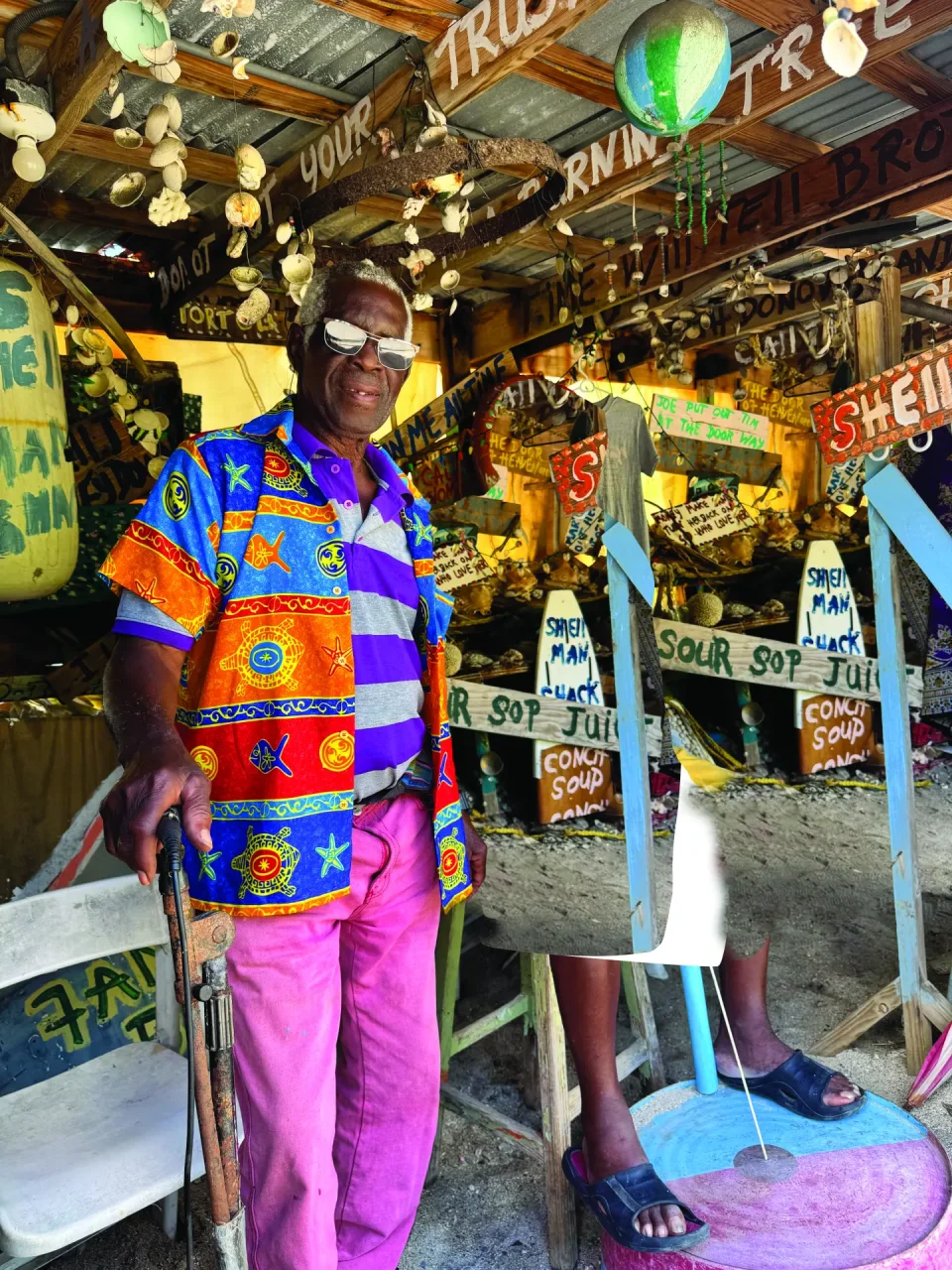
Aside from his love of shells, Egberth has always been interested in the history of his ancestors, and particularly their migration from Great Thatch to Carrot Bay. “I spoke to the elders and they told me that they would go up into the mountains and cut big trees to make canoes to travel between the islands”. This was in the days preceding the traditional Virgin Islands sloop. “These canoes would fit four to five people and they would row, with two people on each oar” he continues.
As a small boy, whenever Egberth’s family travelled by canoe, it was customary to take a break from the midday sun. “We would stop and throw out a fishing line, go into one of the beautiful bays, build a fire and cook fish on the beach”.
“It was the same when we went to Tobago” he says. “We didn’t come back the same day. The boat that we travelled in; we would pull it up on the beach, turn it over and it became our shelter. We would lay down under there, build a fire and cook some fish”.
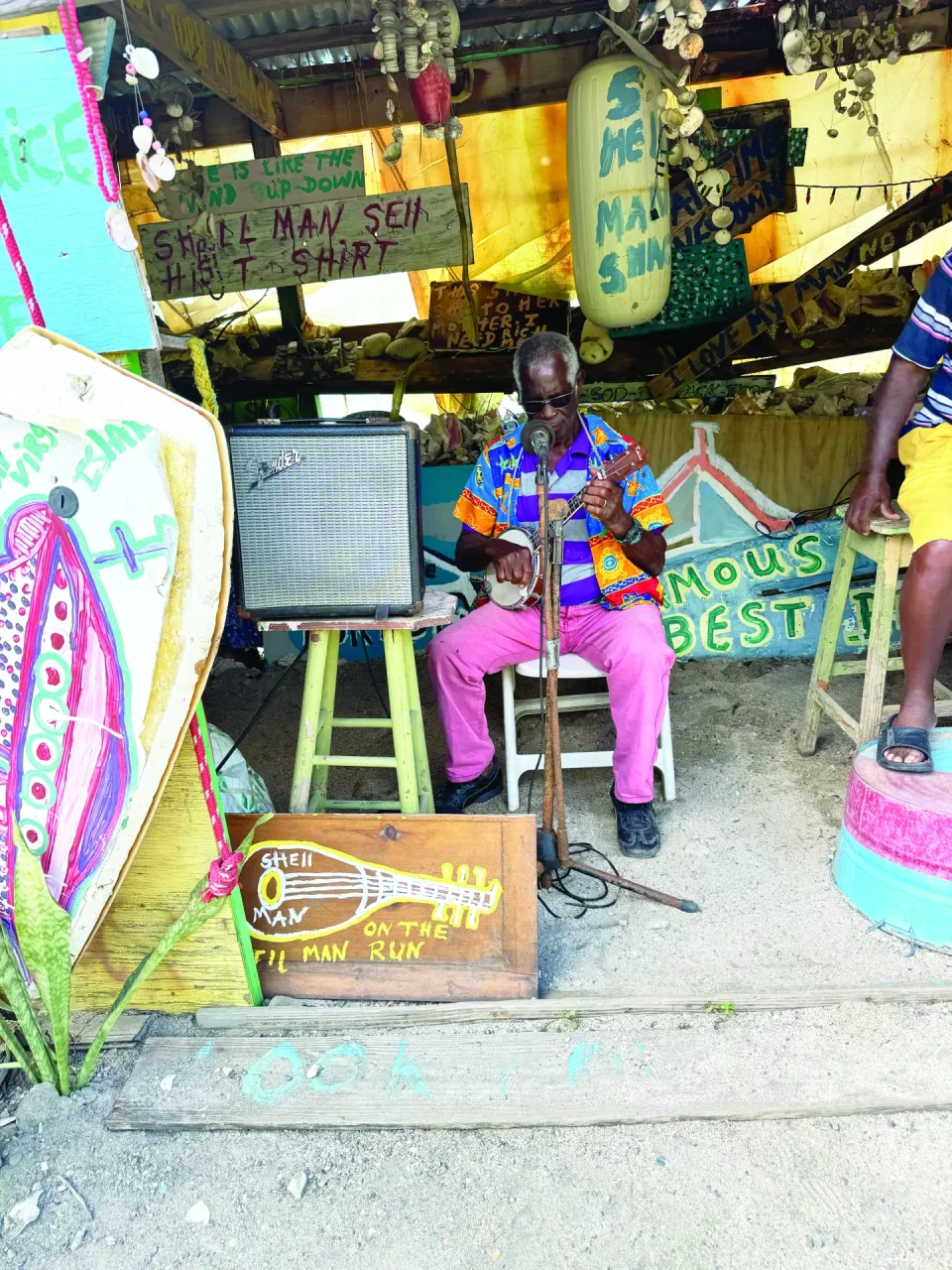
He continues “On Tobago there were a lot of coconut trees, so we would carry [walk with] a machete and cut them down. We would bring some cane rum from Cane Garden Bay to mix with the coconut water…” needless to say, Egbert remembers with a laugh that “Time would lapse fast on Tobago in those days!”
Just as his uncle Joe taught him, Egberth has in turn enjoyed passing on his knowledge to the new generation and continuing his passion for the simplicity of the old ways.
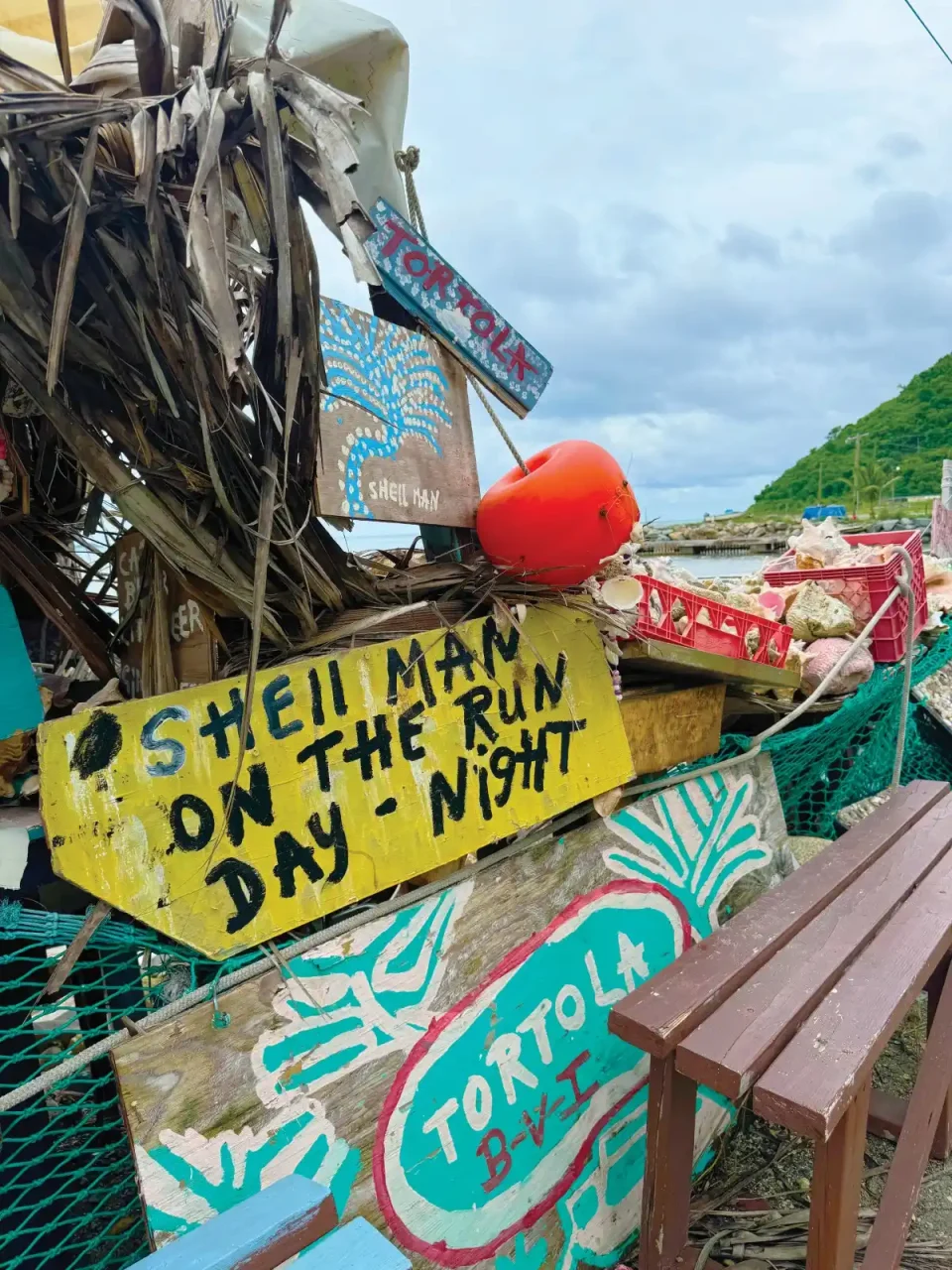
“Children from our community would come to the restaurant to do craft work, paint and upcycle things that they found washed up on the beach. I would show them how to make their own unique artwork” he says. Egberth has found great joy in seeing the children that he has taught grow up to become talented artists and business owners in their own right.
A visit to Tortola is incomplete without a stop at the North Shore Shell Museum. “If anyone would like one of the shells or artworks on display, I prefer to accept donations, just like the old days” he says, before strumming a sweet tune on his banjo, that he wrote himself, titled Local Rum
(of course).
Take the time to visit Egberth at the North Shore Shell Museum.
